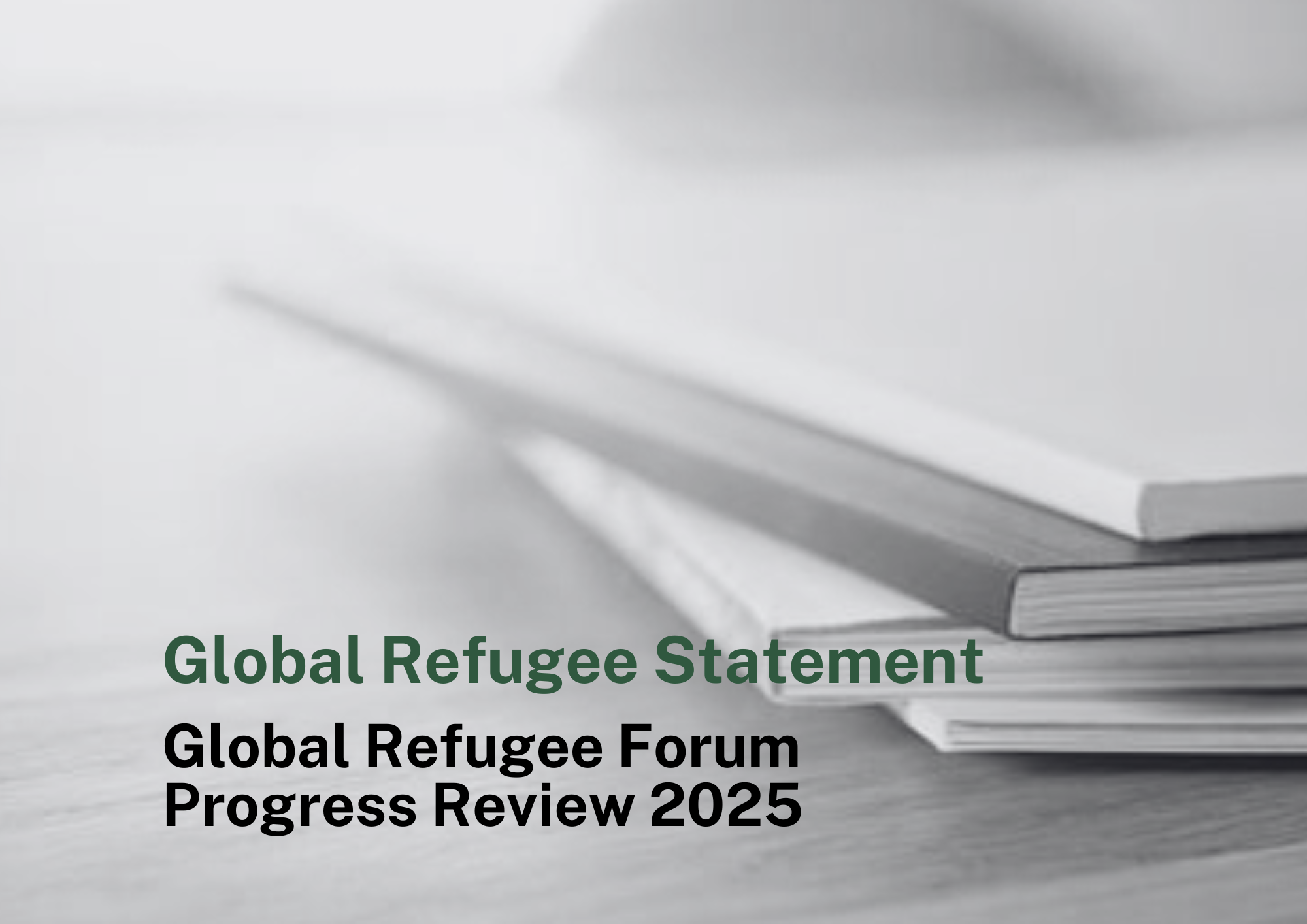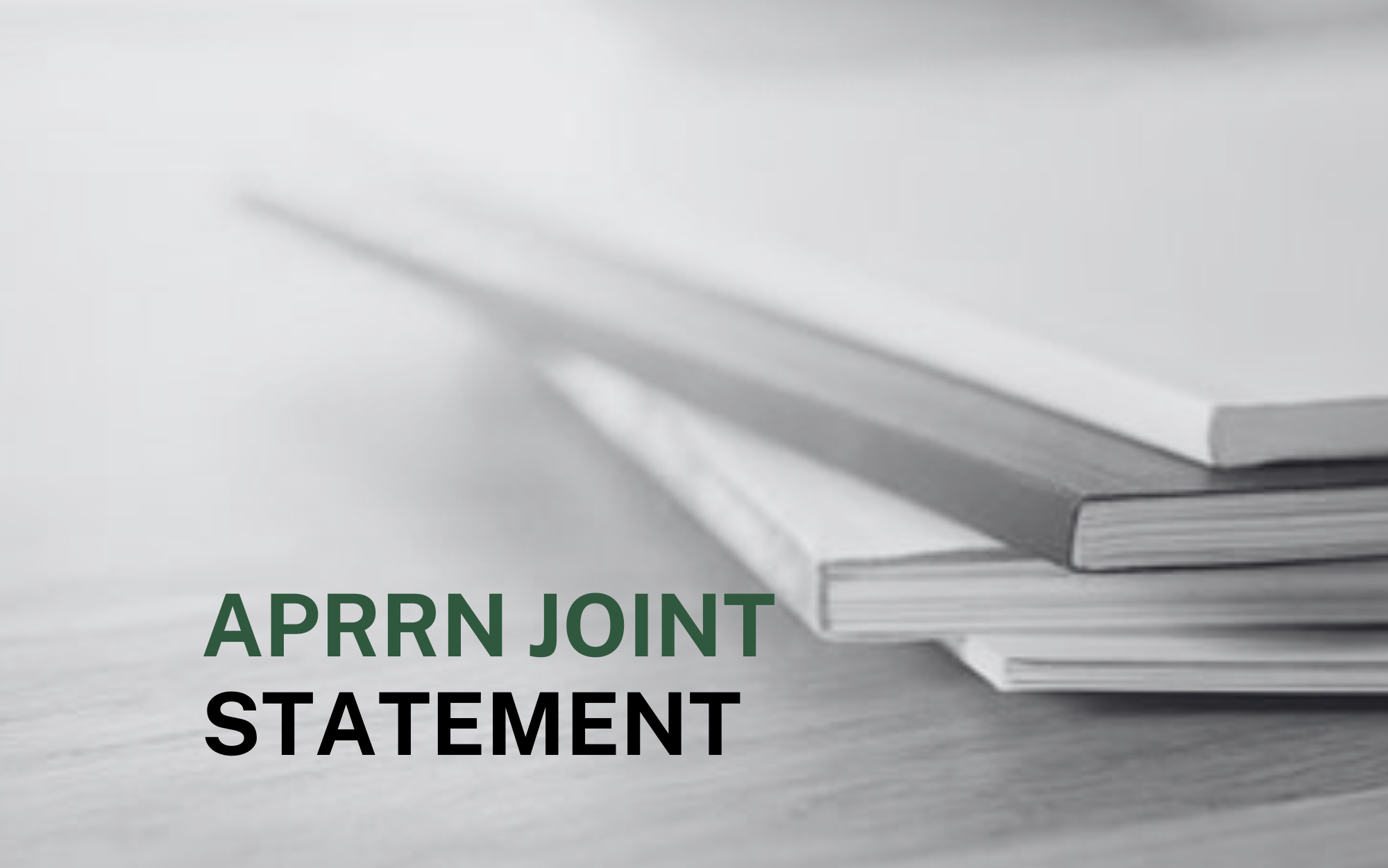APRRN CALLS ON THE GOVERNMENT OF INDIA TO IMMEDIATELY STOP ARBITRARY ARRESTS AND INDEFINITE DETENTION OF ROHINGYA MEN, WOMEN AND CHILDREN ACROSS INDIA
1 August 2023
Statement
APRRN calls on the Government of India to respect the rule of law and immediately cease arbitrary arrests and indefinite detention of Rohingya refugees. APRRN condemns the recent incident on 18 July where prison authorities in Hiranagar in the Indian Union Territory of Jammu and Kashmir used excessive force when shooting teargas at a group of 269 Rohingya men, women and children who were attempting to break free, resulting in several people being injured and the death of a five-month-old child. APRRN further condemns the arrest and detainment of over 200 Rohingya refugees, including women and children, on 24 July in Uttar Pradesh.
In both cases, it is reported that most of the people detained possess identity cards duly issued by the United Nations High Commissioner for Refugees (UNHCR), confirming their status as vulnerable individuals deserving of international protection and assistance.
“We are deeply concerned about the deterioration in the treatment of Rohingya refugees in India including over 500 men, women and children who are reportedly in indefinite detention and holding centres and at risk of refoulement,” said APRRN’s Co-Secretary General, Hafsar Tameesuddin.
APRRN calls on the Government of India to return to its long tradition of providing sanctuary to refugees, which was extended to Tibetans, Sri Lankans, Afghans and Bangladeshis, and must not exclude the Rohingya. In August 2017, the Government of India announced plans to deport “illegal foreign nationals” including Rohingya, of which nearly 20,000 are registered with UNHCR. The Government of India continues to allow the detention of Rohingya men, women and children in pursuance of this order, and there has been a sharp increase in the detention of Rohingyas, but also of other refugees, with disregard for their recognition as refugees by the United Nations.
Supporting Arguments
This ill-treatment of asylum seekers, refugees, and migrants is abetted by the Foreigners Act 1946, part of a set of archaic laws that regulates immigration in India. The Act, a colonial-era law, was enacted to address wartime exigencies and therefore, provides for nearly unchecked executive powers against foreigners and contains no special provisions or statutory exceptions for vulnerable populations like asylum seekers and refugees. This has resulted in a situation where despite UNHCR recognition and the temporary protection they offer, recognized refugees are still at risk of administrative detention (Section 3(2)(e)), criminal imprisonment (Section 14, 14ABC), and deportation (Section 3(2)(c)). Thus, hundreds of Rohingya women and children have been arbitrarily detained in India for years now.
The practice of arbitrary detention of refugees is unconstitutional as reaffirmed by high court decisions, including Anwara Begum and Ors. v. Union of India and Ors. and Sabera Khatoon v. Foreign Regional Registration Office. The constitution of India (1950) sets out ‘fundamental rights’. It guarantees equality before the law and equal protection of the law to every person in the territory of India (Article 14). It further grants the right to life and personal liberty to every person (Article 21) and grants non-citizens fundamental rights with regard to arrest and detention (Article 22). Under the Directive Principles of State Policy, the Constitution also requires the State to “foster respect for international law and treaty obligations” (article 51c).
India, as a member of the global community, is bound by the Universal Declaration of Human Rights (UDHR) and the International Covenant on Civil and Political Rights (ICCPR), that in Article 14 of UDHR and Article 13 of ICCPR include the “duty” to accord protection to refugees. Indian High courts, as well as the Supreme Court, reaffirmed this in the past and held that the forceful deportation or refoulement of refugees amounted to a violation of Article 21 of the Indian constitution. India has made commitments in the Bangkok Principles, 1966 and has actively contributed to the development of the Global Compact on Refugees over the last years. India is party to several other international conventions protecting the rights of refugee men, women and children, including Convention on the Elimination of All Forms of Racial Discrimination (CERD), Convention on the Elimination of All Forms of Discrimination against Women (CEDAW), the Convention against Torture and Other Cruel, Inhuman or Degrading Treatment or Punishment (CAT), the Convention on the Rights of the Child (CRC) and its Optional Protocol on the involvement of children in armed conflict. India signed the International Convention for the Protection of All Persons from Enforced Disappearance and ratified the United Nations Convention on the Rights of Persons with Disabilities.
However, in spite of the Courts’ cognizance and direction, Rohingya refugees continue to be arrested and placed in detention. India’s treatment of Rohingya refugees, and its attempt to refoul them to Myanmar, comes at a time when there is unequivocal evidence that Myanmar’s military junta has committed genocide and that the human rights of Rohingyas remain a grave threat in the country. Since the military coup of February 2021, escalating political and social instability in Myanmar has also created roadblocks to a peaceful resolution any time soon.
In July 2023, UN High Commissioner for Human Rights, Volker Türk, stated at the Human Rights Council session on Myanmar that, “The conditions for Rohingya to return to Myanmar are still non-existent. The military continues to carry out atrocities in their home state of Rakhine, where they are denied citizenship.”
Recommendations
In light of the above, APRRN urgently calls on the Government of India to:
- Immediately cease the arrest and detention of people seeking asylum and refugees who are under or seeking the protection of the United Nations;
- Retract the Ministry of Home Affairs advisory dated 8 August 2017 to detain and deport all Rohingya refugees in India;
- Adopt a more inclusive border control policy and recognise asylum seekers and refugees as special classes of foreigners (as in the case of “survivors of trafficking”) exempting them from the purview of the 1946 Foreigners Act;
- Implement the recommendations made in the Joint Submission to the Universal Periodic Review (UPR) made by Global Detention Project, Asia Pacific Refugee Rights Network and World Organisation Against Torture (OMCT) in November 2022 on issues related to immigration-related detention and asylum.
- Ensure that vulnerable populations including women, children, and refugees are not detained and are afforded necessary protections and access to healthcare including mental health counseling for survivors of trauma;
- Release the arbitrarily detained Rohingya refugees in Jammu, Uttar Pradesh and other parts of the country, especially those who have served their sentences;
- Respect the rule of law and India’s obligations under domestic and international law.
Where refugees are detained, APRRN calls on the Government of India to:
- Engage with national and independent human rights monitoring mechanisms to ensure transparency in the immigration detention system and keep check on conditions of detention;
- Conduct independent evaluations of conditions of detention across detention centres and ensure that where they are not in consonance with international standards, appropriate actionis taken to ensure the right to dignity of all detainees;
Contact
Asia Pacific Refugee Right Network:
Hafsar Tameesuddin
Co-Secretary General, APRRN,
Email: sg.hafsar@aprrn.org
Chris Lewa
Deputy Chair, Rohingya Working Group, APRRN,
Email: chrislewa@gmail.com
The Asia Pacific Refugee Rights Network (APRRN) is a network of over 250 civil society organisations and individuals from 30 countries committed to advancing the rights of refugees in the Asia Pacific region. APRRN aims to advance the rights of refugees and other people in need of protection through joint advocacy, capacity strengthening, resource sharing and outreach.
Recommended

Dec. 15, 2025
Global Refugee Statement – Global Refugee Forum Progress Review 2025
Around the world, families are running out of places to go. The scale of global displacement remains extraordinarily high, with 117.3 million people forced to flee, not because they chose to move, but because staying meant persecution, violence, or the collapse of their basic rights and safety. Behind every statistic is a person who once had a home, a community, and a future rooted in the ordinary rhythms of life. This reality reminds us that the systems designed to protect people in times of crisis are under severe strain.

Sept. 22, 2025
Upholding Not Undermining International Law Civil Society Open Letter to States
In advance of this week’s UN General Assembly High-level meeting, speeches by Heads of State and Government and reported efforts to enlist UN Member States in an attempt to undo international legal protections for refugees, 271 civil society organisations released an open letter to UN Member States calling on them to uphold, preserve, strengthen, and celebrate international refugee, human rights, and humanitarian treaties—and to reject efforts to undo or undermine legal norms.

July 21, 2025
APRRN deeply saddened by the loss of Ravi Hemadri
For over 25 years, Ravi dedicated his life to community mobilisation, training, advocacy, and research. Our community of practitioners and advocates working on the rights of refugees and other vulnerable people on the move in Asia Pacific has lost a friend and colleague. But his legacy will continue to inspire those who worked with him. Our heartfelt condolences go out to his family and loved ones.